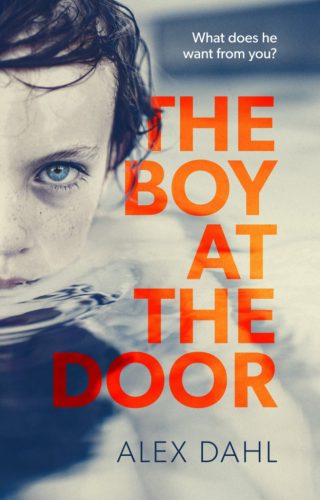
Imagine.
A small, unfamiliar boy is standing, parentless, companionless, by the swimming pool reception. The pool is closing. The receptionist wants to go home. You want to go home. The receptionist asks you to take the boy home and you agree, reluctantly. But when you get there, the house is clearly not a home. What do you do now? It’s dark. It’s raining. It’s late. Do you call someone? Or do you take the child home with you?
Cecilia Wilborg takes the boy home. Why she does this and the subsequent threat to her carefully curated existence forms the narrative arc of this compelling thriller. Who is this boy? Who is Cecilia? And how far will she go to protect what she considers hers?
What’s it about?
Ooh so many things. Primarily the unravelling of Cecilia’s life: the reader is desperate to understand Cecilia’s secret, then desperate to see if she can keep it! But it’s about more than that. It’s about the weight of expectations on women growing up in Norway. It’s about the damage we do to others and ourselves. It’s about the damage we do to our children.
Cecilia is the main female character, but she’s not the only female voice, and I was fascinated by the relationship that develops between her and another damaged woman. The parallels between them are striking but the contrasts are even more so. Cecilia despises the other woman but cannot see the whole truth of her, even when given unparalleled access to her thoughts. But then, as Sue Trowbridge accurately notes, Cecilia is ‘at best, a narcissist, and at worst, a sociopath’ (quoted from review on The Saturday Reader). She is a spectacularly unreliable narrator, who abuses drink, drugs and people she perceives to be her social inferior, constantly distancing the reader with her little cruelties and complete self-absorption. It’s a testament to Dahl’s skill that, somehow, we find ourselves not quite hating her: somewhere, under all that façade, there is a sad little girl who never grew up.
What’s it like?
Compelling. Disquieting. Completely unputdownable. (Genuinely: I tried to go to bed when I had fifty pages remaining; I couldn’t sleep so had to get up and read to the end!) I loved the way actions are gradually revealed and the ending was fantastic.
Although I do love unreliable narrators, it is perhaps refreshing to have a break from Cecilia’s concerns to hear from two other first-person narrators: another woman and the boy himself. Gradually, the history of all three characters is fully revealed, offering fresh insight into the events at the beginning of the story. Dahl cleverly interweaves the three, revealing or hinting towards just enough information to keep us frantically turning pages, searching for the truth. Cecilia herself wonders: ‘Have I told so many lies, both to myself and to others, that I have lost the ability to recognise the truth?’
Final thoughts
This was an absolutely compelling domestic thriller with two deeply troubled female protagonists. Having thoroughly enjoyed reading this, I now find myself still thinking about the characters and the connections between them, their obsessions, their choices and, of course, their impact on a small boy who just wanted love.
I can’t wait to read what Alex Dahl writes next.